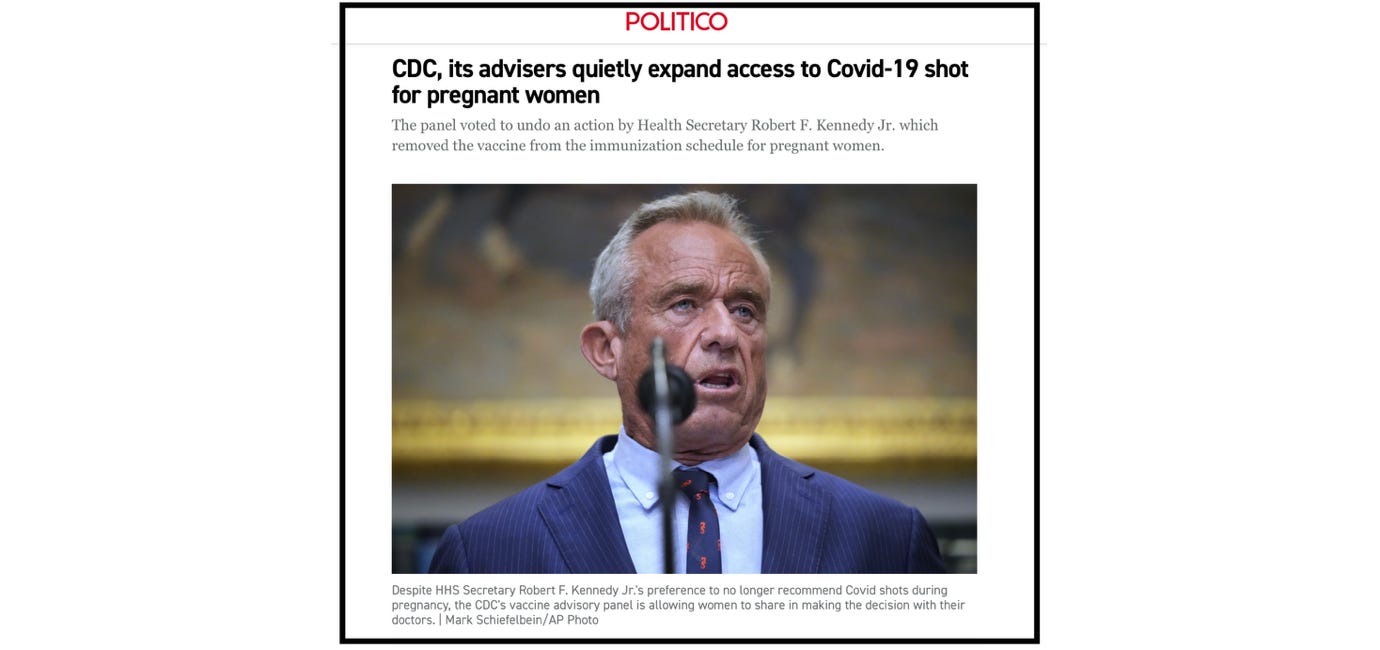Politico’s false narrative on Kennedy and Covid shots in pregnancy
Politico claims the CDC and its advisers worked to quietly “undo” Robert F. Kennedy Jr.’s decision on Covid shots in pregnancy — but once again, bias got in the way of the facts.
Today, Politico ran a story suggesting that Kennedy’s own advisers on the CDC’s Advisory Committee on Immunization Practices (ACIP) had defied him.
“The panel voted to undo an action by Health Secretary Robert F. Kennedy Jr. which removed the vaccine from the immunization schedule for pregnant women,” it declared.
The article went further, asserting that the CDC and ACIP had “quietly opened the door to wider access … softening an earlier decision by Health Secretary Robert F. Kennedy Jr. to stop recommending that pregnant women get the shots.”
But according to ACIP member and Covid work group chair Professor Retsef Levi, that account was pure fiction.


